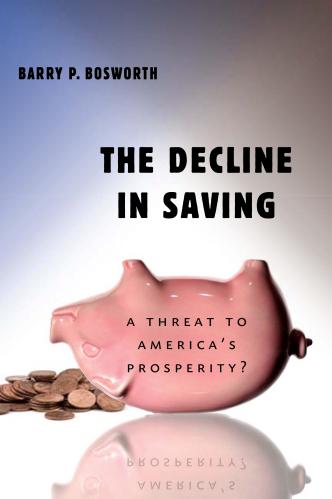Abstract
This paper examines trends in saving and investment in the major OECD countries and discusses some of the major factors, such as income growth and demographic change, that are likely to influence future developments. The paper argue that lower rates of economic growth are likely to reduce both private saving and investment in the future, but that the impact on investment will be greater than that for saving. Thus, lower growth in the OECD countries will lead to a surplus of private saving over private investment rather than a shortfall. Concerns about a future shortage of aggregate saving driving up interest rates should focus upon the evolution of government budget balances rather than private behavior.
Demographic changes are likely to have major implications for public sector finances ; but, except for Japan, many of these pressures from an aging population lie several decades into the future.
Introduction
The economic recovery within the major industrial countries has led to renewed concerns and discussions of the potential for a future global capital shortage. The concept of a shortage is, in some respects, a misleading term since any shortage can be eliminated by a rise in price. Perhaps a more meaningful statement of the issue is to ask whether future demands for capital, including the financing of public budget deficits, will tend to outrun the growth of saving, putting upward pressure on real interest rates. This question takes on some relevance because of a general trend toward lower rates of private saving throughout much of the OECD, sharply higher public sector budget deficits, and a pattern of unusually high real interest rates over the past decade. Furthermore, increased attention is being directed toward the implications of a rapid aging of the population throughout most of the industrial world that is projected to reduce rates of private saving and sharply raise the public sector costs of retirement pensions and health care. Will public opposition to tax increases lead politicians to turn increasingly toward deficit finance to meet these bills?



